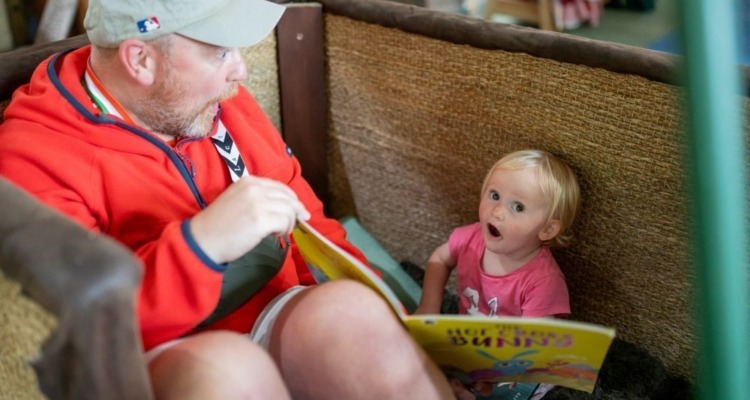English or American literature on the syllabus?
 Literature has been making headlines over the weekend with new plans to overhaul the GCSE English Literature syllabus in schools. In a shake up of the current syllabus, it has been reported that Education Secretary Michael Gove has called for works by American authors - including Of Mice and Men by John Steinbeck, The Crucible by Arthur Miller and To Kill A Mockingbird by Harper Lee - to be removed, in order for students to focus on works by British writers such as Jane Austen and Shakespeare.
Literature has been making headlines over the weekend with new plans to overhaul the GCSE English Literature syllabus in schools. In a shake up of the current syllabus, it has been reported that Education Secretary Michael Gove has called for works by American authors - including Of Mice and Men by John Steinbeck, The Crucible by Arthur Miller and To Kill A Mockingbird by Harper Lee - to be removed, in order for students to focus on works by British writers such as Jane Austen and Shakespeare.
The news has sparked a passionate response from academics, writers, readers - and even a pointed comment from one exam board - who all argue that rather than broadening the literary content on offer, as Mr Gove has said will be the case with the new measures, young people will instead be disencouraged from finding literature that has the potential to inspire and move them.
Following the outcry, there has since been a reply from both Mr Gove who has dismissed claims that he intended to ban works from American writers from being taught in schools, and the Department for Education who pointed to the strict guidance that exam boards have been issued with to cover a wider range of literature within the subject. Within the new requirements, a minimum core of at least one whole Shakespeare play, poetry from 1789 including the Romantics, a 19th century novel and some fiction or drama written in the British Isles since 1914 must be covered by teachers in order to create a 'broader ambition' for students.
Mr Gove noted that beyond these specifications teachers are free to include any other texts for study, including Of Mice and Men, which has been studied by 90% of GCSE English Literature students previously, and works from other American others.
At The Reader Organisation, we believe that great literature in all its forms - from British to American to authors of any other nationality, both classic and contemporary - is there to be enjoyed by readers of all ages and backgrounds. In our weekly shared reading groups that run around the UK, readers have been introduced to Steinbeck as well as Shakespeare, with the focus on the text being shared providing a relaxed and enjoyable atmosphere where literature comes to life. One of the effects of this is that people's reading habits can change and develop as they discover books and authors they have never previously encountered before, with guidance from group leaders giving them the confidence to explore further.
 It's not just the choice of literature that has an impact, but also perspectives on the world widen through shared reading: 72% of our group members in health and wellbeing settings felt shared reading had helped them to think about things in a different way, and 81% of our group members in open community groups enjoy the opportunity to develop relationships with people from different cultural backgrounds.
It's not just the choice of literature that has an impact, but also perspectives on the world widen through shared reading: 72% of our group members in health and wellbeing settings felt shared reading had helped them to think about things in a different way, and 81% of our group members in open community groups enjoy the opportunity to develop relationships with people from different cultural backgrounds.
We read specifically with young people in both education and one-to-one settings outside of school, with the entire focus of our sessions encouraging reading for pleasure and a greater love of literature in young people. As a key partner of City of Readers, we're working within schools delivering Reading Revolutionaries training for pupils to read for pleasure with one another, ensuring that all students have access to a wide, varied and high quality range of literature that they can enjoy in and out of school hours.
100% of the looked-after children we read with one-to-one told us they enjoyed reading books they wouldn’t have chosen themselves, and that they enjoyed discussing their ideas and opinions - together with City of Readers we're aiming to get even more children and young people reading a greater range of great literature, expanding their horizons and imaginations.
Long may the discovery of great literature continue, both in and out of schools!
Find out more about our reading in education settings and with young people on our website: https://www.thereader.org.uk/what-we-do-and-why/education-young-people
For more about City of Readers and to discover how we're part of plans to make Liverpool the UK's foremost reading city and ensuring every young person leaves school reading for pleasure, visit https://www.cityofreaders.org/
Share
Related Articles

We cannot just tell parents to read more. To truly improve children’s futures through reading, we need to properly support the adults around them to do so.
Responding to the Department of Education's announcement that 2026 will be a Year of Reading, The Reader's Managing Director Jemma…

Storybarn Book of the Month: Saving the Butterfly
This month, as part of Refugee Week (16-22 June), we've been taking a look back at one of our favourites…

Shared Reading in Wirral Libraries: ‘As a kid people read stories to you but as an adult you lose that – and it’s a fantastic thing to do!’
Two Strategic Librarians for Wirral Libraries, Kathleen McKean and Diane Mitchell have been working in partnership with the UK’s largest…


